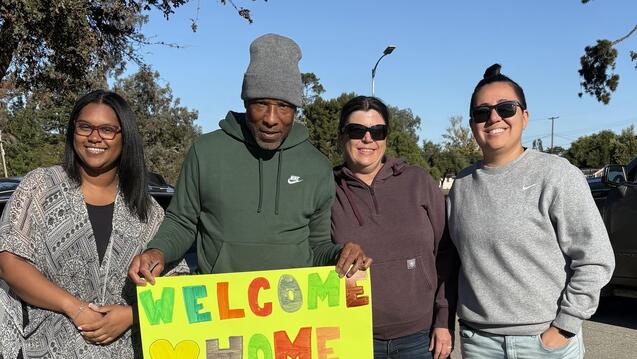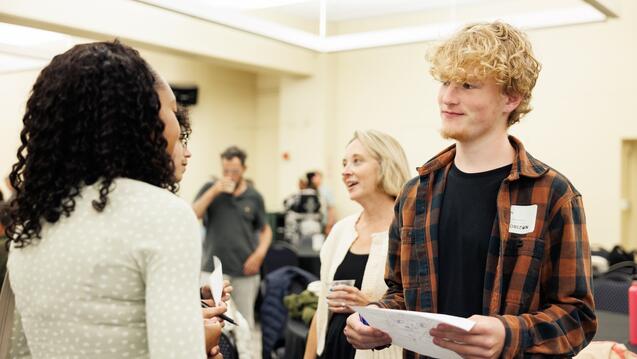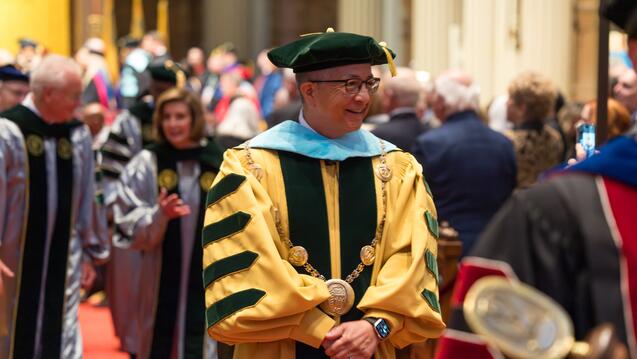USF Brings Mental Health Care to Neighbors in Need

Students in the School of Education are changing how mental health is treated in San Francisco.
“We’re trying to make sure everyone who needs therapy can access it,” said Cori Bussolari PsyD ’01, professor of counseling psychology and co-director of the Center for Community Counseling and Wellness at USF.
The center, located in the School of Education building, offers no-fee or low-fee individual, family, and couples counseling to low-income, uninsured, or otherwise vulnerable people in San Francisco, Bussolari said — “especially those in minoritized, underserved, disenfranchised communities and those who have experienced high levels of trauma, whether it be domestic or migration — whatever it might be.”
The center trains the next generation of therapists in USF’s Marriage and Family Therapy program, Bussolari said. Since 2023, the clinic has trained 10 MFT students and served approximately 100 clients referred by community partners such as UCSF Citywide program, San Francisco SafeHouse, and the district attorney’s Victim Services division.
Jing Rong MA ’25, a recent graduate of the MFT program who’s now an associate at the center, described how the center might counsel a client:
Trauma-informed care moves away from the notion that clients are “broken” or in need of fixing, Rong said. Instead of correcting thoughts or behaviors, the therapist collaborates with the client to examine past experiences and subconscious influences. The goal is to uncover how earlier trauma may have contributed to current fears, limitations, or patterns of avoidance, viewing these struggles as natural responses to trauma.
Another associate, Cristina Collins MA ’25, now an EdD candidate in international and multicultural education, added that the center aims to build trust and connection from the start.
“Maybe a client doesn’t respond to us after our fifth call or email or text. And so instead of saying, ‘OK, we’re going to close your case and move on to the next client,’ we say something more along the lines of, ‘Hey, we understand that right now might not be the right time for you, but we are definitely always here whenever you are ready to start services. The door is always open.’”
The work Collins and Rong do at the center contributes to the 3,000 hours required to become licensed clinical counselors, Rong said. But that’s not the only reason they do this work.
“I feel I have a purpose,” Rong said. “I want to help people feel better. I want to invest my time and my life into helping people heal.”


